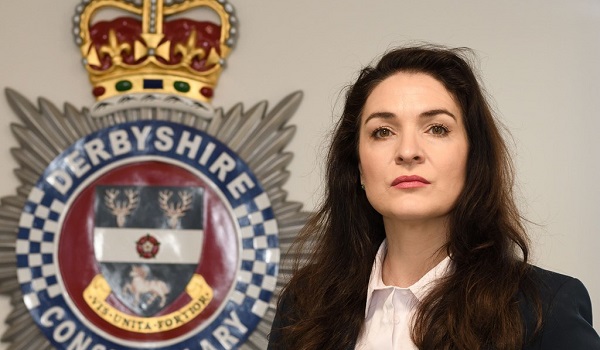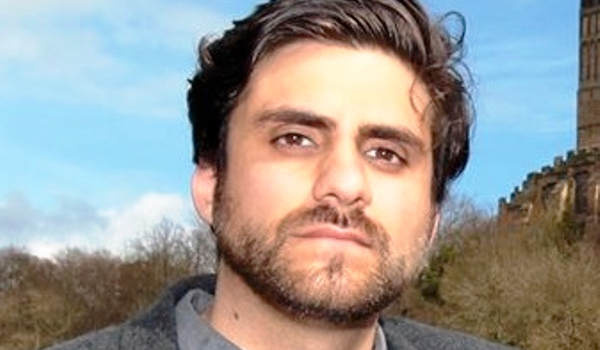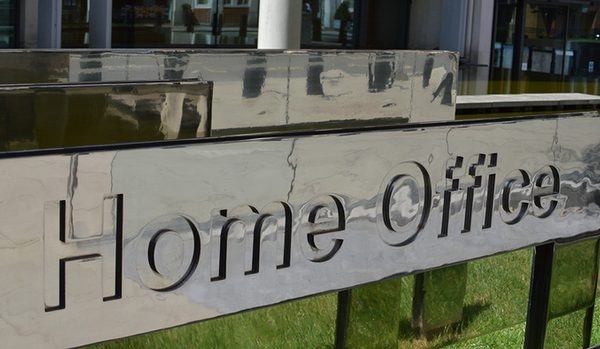Vast majority of stop and search complaints against MPS are dismissed
The Metropolitan Police Service (MPS) has received close to 5,000 complaints about the misuse of stop and search powers since 2014 but only six have resulted in officers being disciplined, new figures reveal.
Some 4,917 allegations have been made about the MPS’s use of the tactic in the past seven years, according to data obtained by the PA news agency under Freedom of Information (FoI) laws.
The number of complaints more than doubled from 786 in 2019 to 1,744 last year, with the number of searches carried out rising from 268,771 to 319,713 in the same period.
None of the 990 complaints made in 2020 was found proven following investigation by the MPS’s Directorate of Professional Standards.
A total of 17 officers have faced disciplinary proceedings for stop and search since 2014, the figures show.
However, the allegations were found proven in just six of those cases, with four officers receiving management advice, one a written warning and another a final written warning.
The MPS said the disciplinary action figures relate only to breaches of Code A of the Police and Criminal Evidence Act (PACE) 1984 – which governs the exercise by police officers of statutory powers to search a person or a vehicle without first making an arrest – and that other allegations, such as rudeness, would be recorded under a different allegation type.
A breakdown of complaint allegations relating to stop and search shows a total of 748 complaints recorded as a Breach of Code A between 2014 and 2020, meaning fewer than one per cent have resulted in any disciplinary action.
Other allegations include assault, oppressive behaviour or harassment and discriminatory behaviour.
Commander Jane Connors, MPS lead for stop and search, said: “Stop and search keeps Londoners safe and removes lethal weapons from our streets. We need to hear from those who are not happy – we welcome this scrutiny and drive for continual improvement.
“We would expect to see a rise in complaints considering the increase of stop and search encounters in 2020. However we are not complacent and are committed to ensuring that every encounter is conducted professionally with respect and courtesy.
“We understand the impact that even a thoroughly professional encounter can have on an individual stopped and searched, and that its impact can resonate more widely with communities. We want to work with our communities to increase their trust and confidence in their policing service.”
The data shows that one officer faced disciplinary proceedings last year, but the finding was not proved, with three out of seven cases proven in 2019.
One officer was disciplined after a proven finding in a total of three cases the previous year, while no findings were proved in 2017 despite four officers facing disciplinary proceedings.
Each single case in 2014 and 2016 was not proved, while no officers faced any action in 2015.
The figures come after the Independent Office for Police Conduct (IOPC) last year made 11 recommendations for the MPS to improve its use of stop and search powers.
A review of cases found the “legitimacy of stop and searches was being undermined” by a number of issues, including a lack of understanding about the impact of disproportionality and poor communication.
In one investigation, a black man in possession of someone else’s credit card was suspected of having stolen it even after providing a credible explanation.
In another case, officers used stop and search powers after brothers Liam and Dijon Joseph, who are black, fist-bumped, believing them to be exchanging drugs.
Their lawyer, Carolynn Gallwey, from solicitors firm Bhatt Murphy, told PA: “The problem with the complaints process is that it doesn’t allow an inference of discrimination if there is no other explanation for why the officers acted as they did.
“So without overt discriminatory language etc they will always be given the benefit of the doubt.”
New legislation was introduced in February in a bid to overhaul the police discipline system.
Commander Connors said: “The use of stop and search powers is rightly subject to scrutiny both internally and externally through the IOPC and the complaints process and through our community monitoring groups.
“These exist in every borough and their feedback helps us make further improvements where needed. This includes the screening of body-worn video footage.”
The most recent official statistics show that police forces in England and Wales carried out the highest number of stop and searches in seven years, with the figure rising by more than 50 per cent in the 12 months to March 2020.
There were 558,973 stop and searches carried out under Section 1 of PACE in England and Wales, according to the Home Office report, which said the MPS “accounts for half of the increase in the number of stops and searches in latest year”.
Figures show black people are almost four times more likely to be stopped and searched in the street than white people in London and the MPS has faced controversy and accusations of alleged racial profiling following a series of high-profile incidents filmed and shared online.
MPS Commissioner Dame Cressida Dick apologised and launched a review into the use of handcuffs pre-arrest after the vehicle stop of Team GB athlete Bianca Williams and her Portuguese sprinter boyfriend Ricardo Dos Santos in West London last July.
But she has repeatedly defended the use of stop and search powers to take hundreds of weapons a month off London’s streets.
Speaking on an LBC radio phone-in last month, she recognised “concerns” over the tactic, but said: “It’s a very important tool, it’s a power that we have used more, not less – over 300,000 stops and searches last year – and it has been part of why, year on year, we have seen reductions in young men being stabbed and a variety of other violent crime types on our streets.”
Campaign group StopWatch said: “The findings from this FoI prove once again that the police complaints system is not fit for purpose.
“It essentially requires individuals asking a force to police itself using procedures opaque to the public, so it comes as no surprise that those who need answers most from their negative stop and search experiences are least likely to access the system, and so there is little faith that injustices will be rectified.
“Worse still, the sheer volume of complaints tell us that too many police officers in London who conduct stop and searches cannot be trusted to do so properly.”
Former Shadow Home Secretary Diane Abbott told PA: “These figures show a very disappointing story.
“Nothing has caused more antagonism between the community and the police than the misuse of stop and search.
“Obviously there is a role for stop and search, but the Met Police management need to take enforcing the rules around it much more seriously.
“This situation can only undermine community confidence in the Met Police at a very difficult time.”







